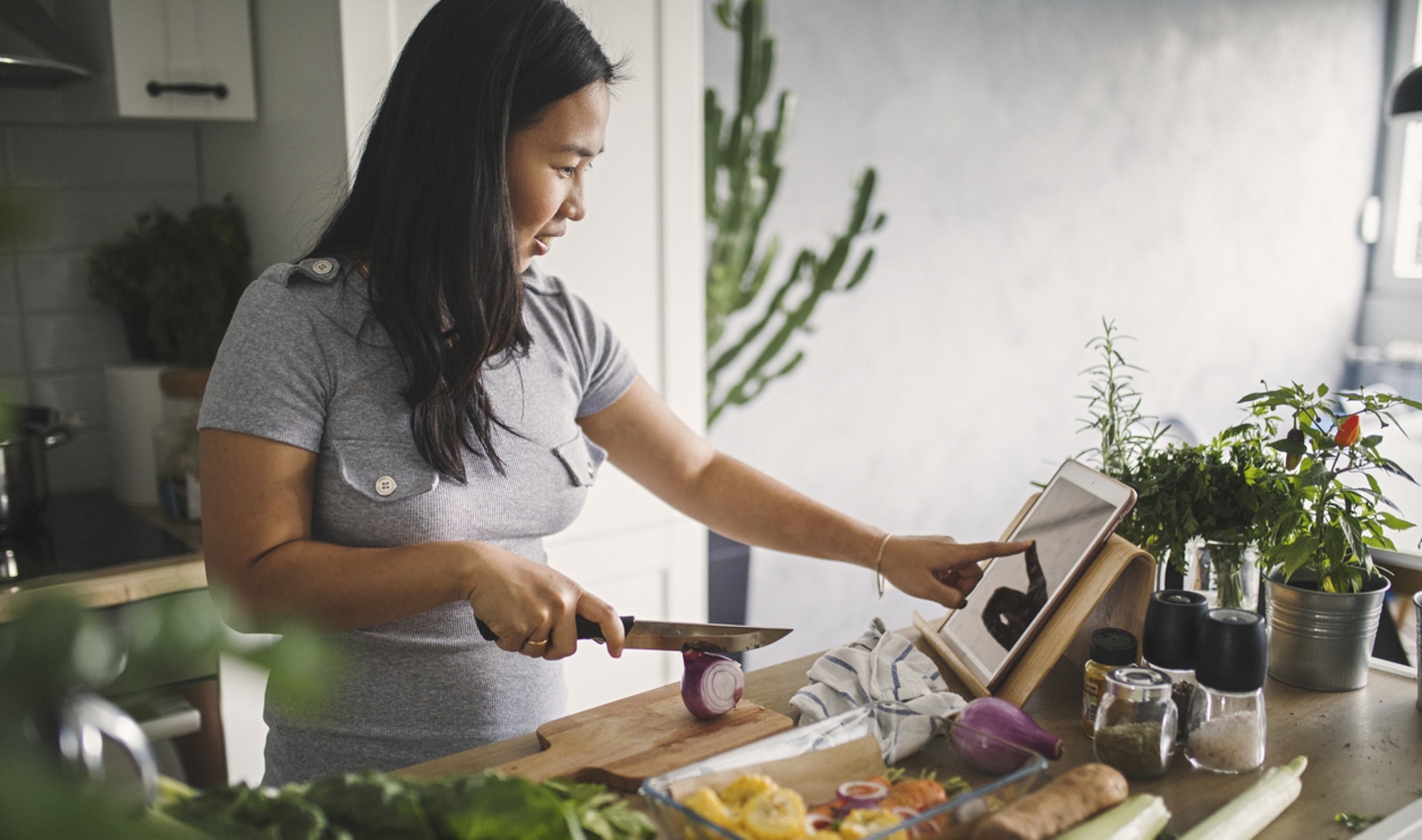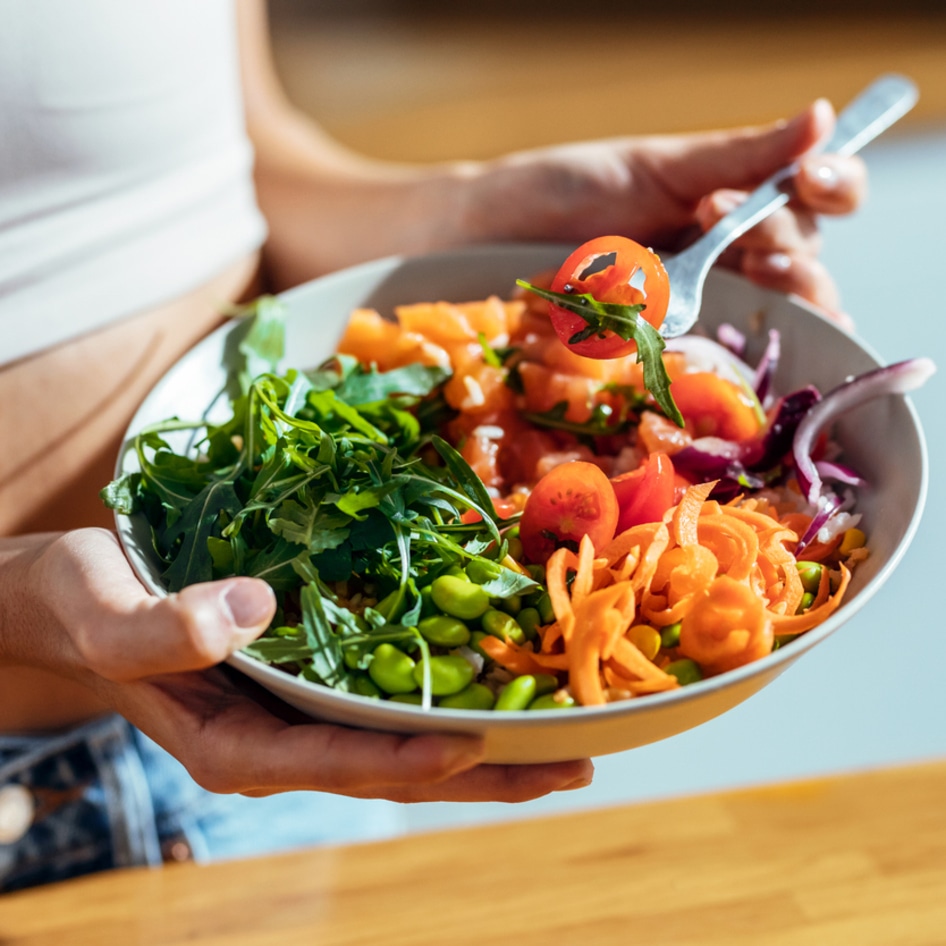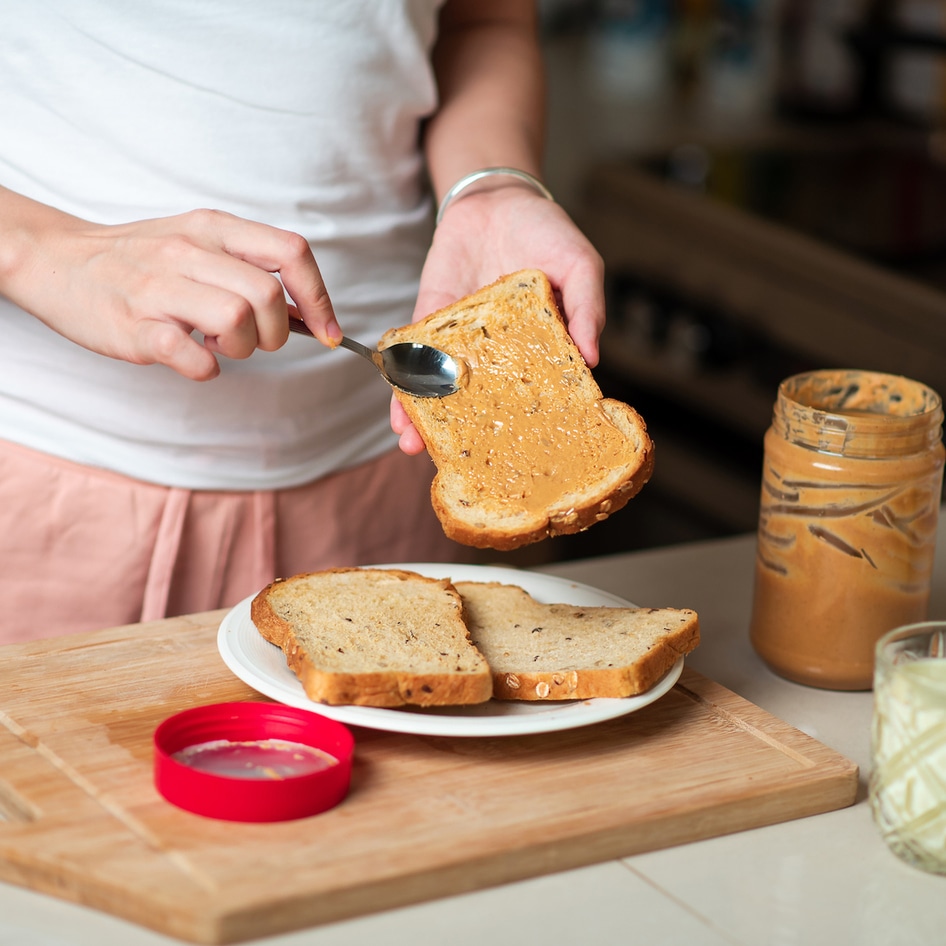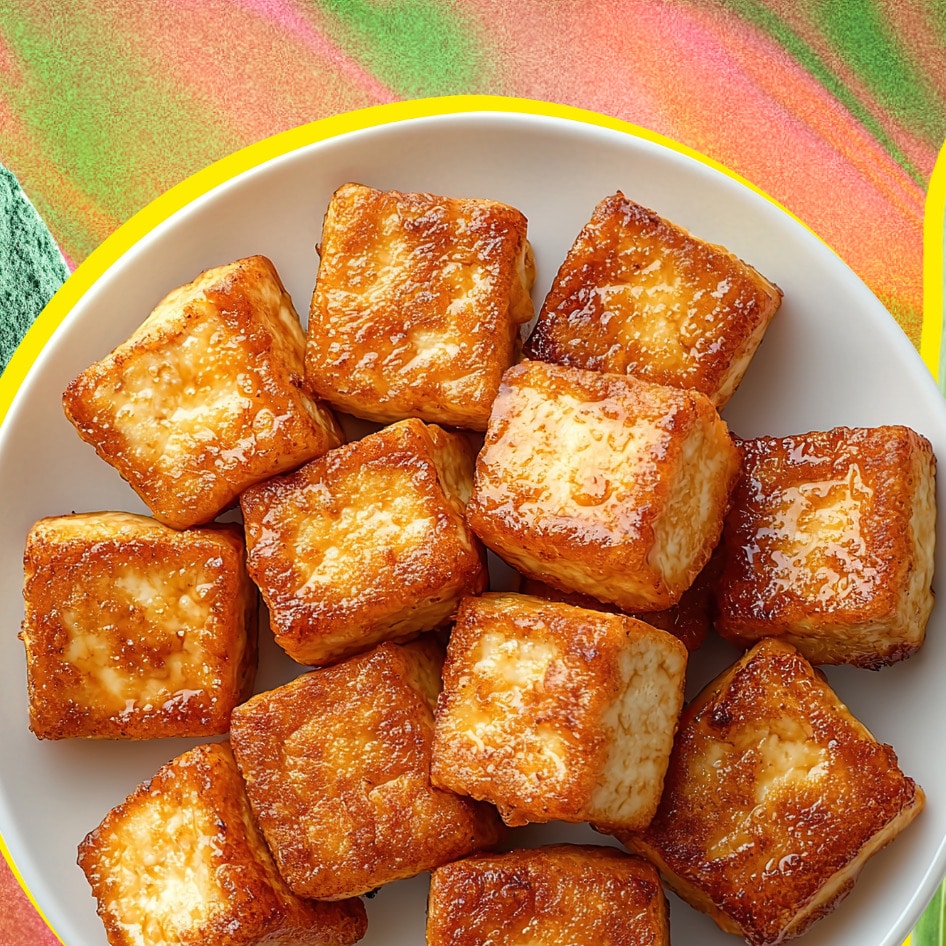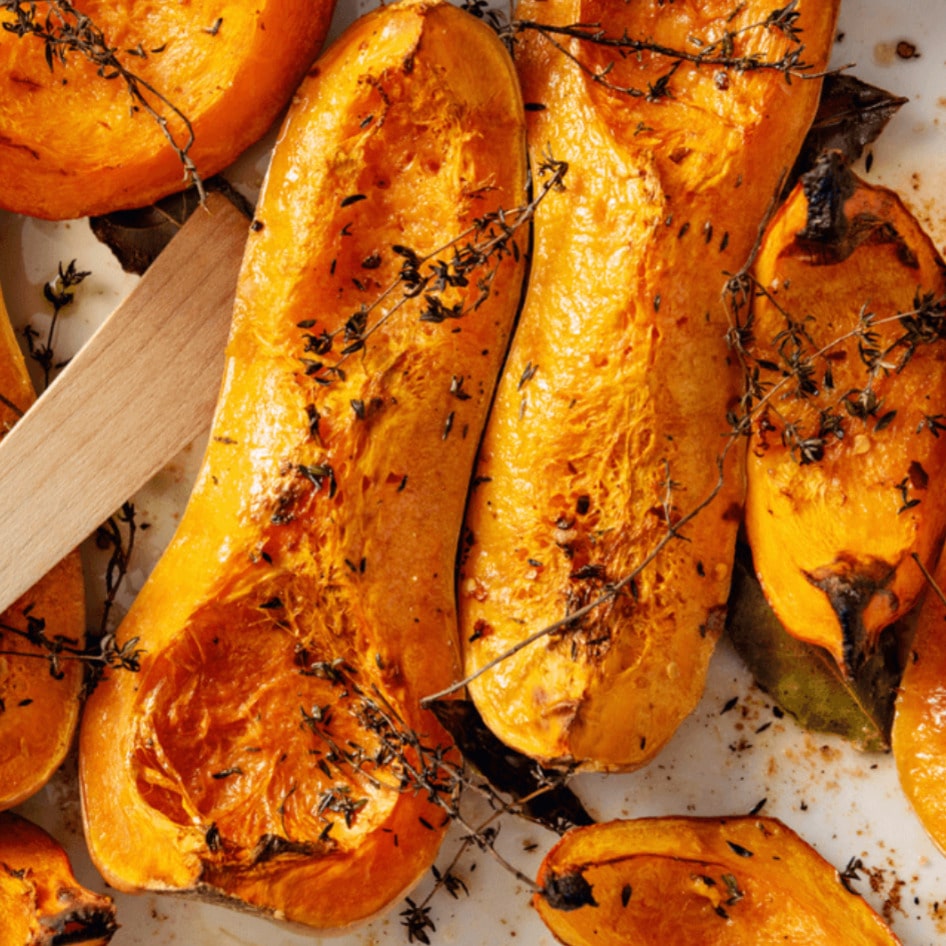When you have diabetes, especially type 2, everyone is very keen on what they think you should and shouldn’t eat. They mean well, but they are often misguided. Who can blame them for being confused, like I was, about how to properly manage my diabetes? No matter what diet you follow, having diabetes isn’t easy, but there is certainly a path of least resistance, and going plant-based can help.
How to navigate diabetes as a vegan
Here are five simple ways to manage diabetes on a vegan diet.
Note: this is not medical advice. This is based on my personal journey with type 2 diabetes and my experience as a plant-based chef. Always consult your doctor when it comes to your condition.
 Canva
Canva
1Find a nutritionist familiar with vegan lifestyles
Diabetes management is built around education and knowing your numbers.
You need to know the normal range for your blood sugar, your A1C goal (the amount of sugar stuck to hemoglobin molecules in your blood cells), and identify any nutrition-related goals. When I was diagnosed in 2019, I didn’t receive any of that education, nor was it offered to me. I was simply told to “keep doing what you’re doing,” and I had no idea what that meant.
By meeting with a registered dietitian nutritionist (RDN) who is familiar with veganism, you’ll have a sympathetic ear when it comes to explaining what you do and do not eat. When I finally met with a nutritionist one year later, after being hospitalized for blood sugar that was too high, I was simply given lists of food with red, yellow, and green labels. Eat mostly in the green section, a little from the yellow section, and avoid the red section if possible.
The problem with that approach was that I didn’t see any improvements. The “stoplight” system was too vague. Had she recommended a plant-based diet, I believe I would have seen better results, and faster. A good dietitian who knows about plant-based diets can not only advise you on what foods to eat or avoid, they can also educate you as to why.
Knowing how food interacts with your body and condition can empower your meal choices and provide a better understanding of what is happening in your body.
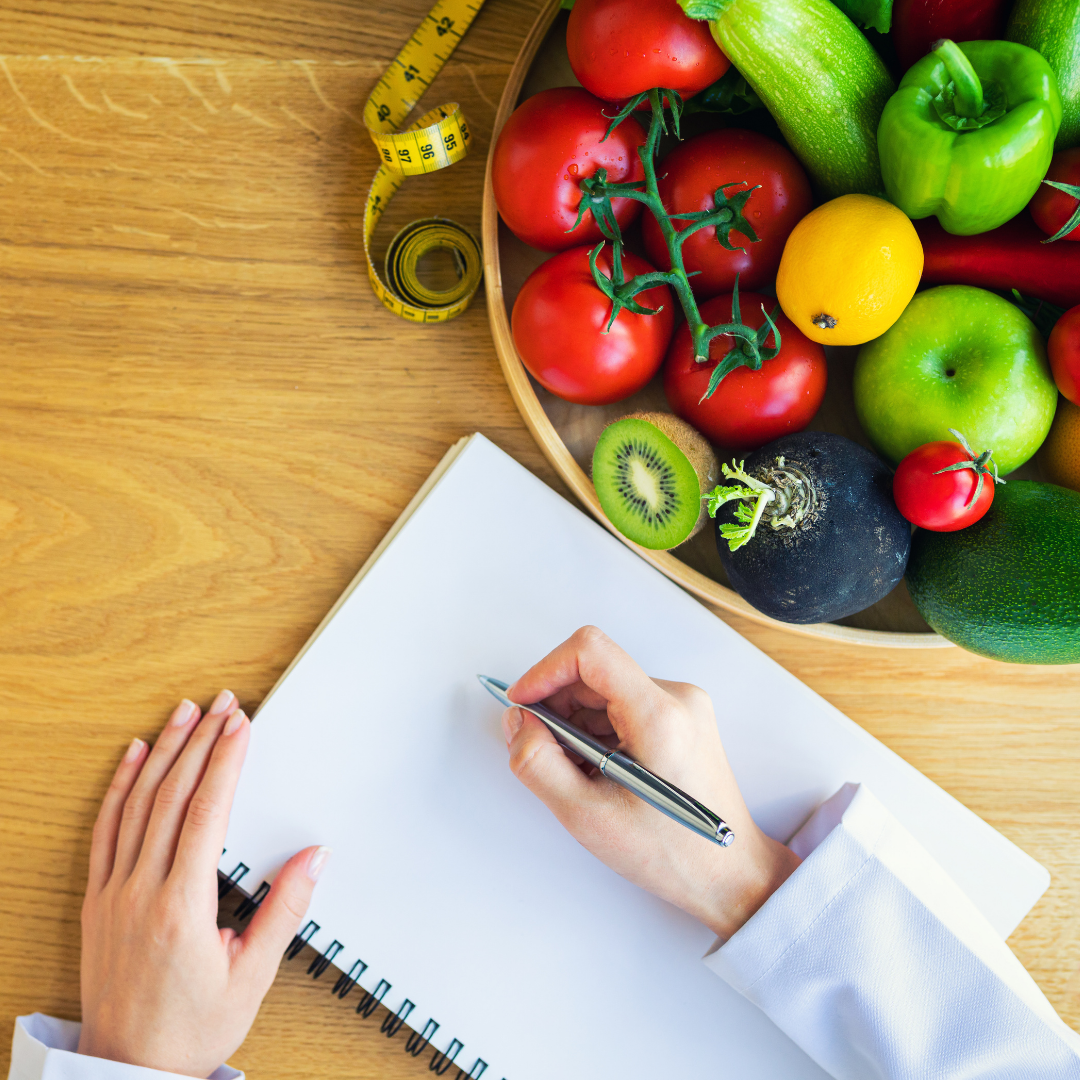 Canva
Canva
2 Track your food, but not too much
Tracking your food can be helpful, but not to the point where it becomes an obsession. The goal of tracking is to be aware of what you put into your body—not to record every calorie or micronutrient.
When you look back on your day or your week, a food log can help determine how balanced your nutrition is. Are you drinking enough water? Did you skimp on fresh produce or supplement with processed foods?
All of these things affect the blood sugar reading so it’s important to know what you’re consuming and whether that spikes your blood sugar or keeps it on an even keel.
 Canva
Canva
3 Be active
Maybe you don’t identify as a yogi or a runner. Many people don’t, but chances are there is some type of movement you do enjoy. The key is to identify that and stick with it.
Some of us get pleasure out of a simple stroll whereas others need the music bumping in a club-like studio gym. Whatever gets you moving, make it a habit and be consistent. Many see an immediate positive correlation between being active and steady blood sugar.
If you’re eager to do something more intense such as long-distance running or heavy lifting, discuss a fueling strategy with your dietitian.
Research published in the journal Advances in Experimental Medicine and Biology shows that at least 150 minutes of aerobic and resistance exercise a week can benefit people with type 2 diabetes.
 Canva
Canva
4Eat more whole foods
A once-in-a-while flirtation with plant-based processed foods is fine, but when your intake of whole-foods suffers for it, then it’s time to reevaluate. Note: whole-foods refers to food as close as possible to its whole, natural state. For example: apples instead of apple juice or tofu instead of soy-based meat products.
After my trip to the ER in 2020, I found that incorporating high amounts of whole-foods into my eating plan dropped my numbers quickly. By eliminating animal products, I could eat better, feel better, and have numbers closer to my normal range goal.
This was especially important because my vision was really blurry for about a week. Eating whole, plant-based foods helped me correct my eyesight back to normal in only about a week and a half because my blood sugar was more controlled.
Research backs this up. A primarily whole-foods plant-based diet is associated with a number of benefits, including a lower risk of type 2 diabetes, heart disease, and certain cancers. And while enjoying processed vegan meat alternatives from time to time is healthier than consuming animal meat, most of your diet should be comprised of whole, plant-based foods.
Robby Barbaro, MPH and Cyrus Khambatta, PhD—authors of Mastering Diabetes—suggest following the 80/20 principle. “If people simply ate 80 percent of their vegan diet from whole foods and only 20 percent of their diet from processed food, then they would likely become healthier people and also develop a sustainable eating pattern that would last for many years,” they explain.
 Canva
Canva
5 Love your (unprocessed) carbs
People make a huge deal over carbs and often, with the best of intentions, tell diabetics those foods are forever off the table. Who wants to live a life devoid of fruit, potatoes of all kinds, and bread? No one.
Carbohydrates of all kinds have a place in our eating plan because carbs are the body’s primary source of energy. “Carbohydrate-rich foods are actually some of the most nutrient-dense foods on the planet and are excellent choices for people with all forms of diabetes,” say Barbaro and Khambatta.
In fact, eating too few simple carbohydrates can negatively impact your blood sugar just as much as eating too many processed carbohydrates, so it is essential to not deprive yourself of this vital (and satisfying) energy source.
Unprocessed carbohydrates include fruit, vegetables, beans, brown rice, and other whole grains, and legumes. Artisan bread is more processed, but you can work with your dietitian to establish a moderate amount that won’t spike your blood sugar.
BECOME A VEGNEWS VIP: Get exclusive product deals, freebies, and perks galore!
Research shows that higher consumption of whole grains is associated with a lower risk of type 2 diabetes.
Still fearful that bananas or carrots might do you in? I may be a case study of one, but here’s a bit of anecdotal reassurance: during January 2021, I saw my A1C drop from 8.1 to 7.1 and my fasting blood sugar numbers drop to 95-105 mg/dL just by leaving in unprocessed carbohydrates … and some bread.
I love my artisan bread, but I also began to love brown rice, making my own dressing, and cooking real food for the first time in my life. I had never even made a big, green salad until May 2020. It’s life-changing. Literally. And for the record—salad is a carb.
Regardless of how long you’ve been vegan or diabetic, it takes time to adjust to a new way of eating and living. But these lifestyle adjustments will be beneficial for you in the long run. You don’t have to change everything all at once, and you shouldn’t. But by taking bite-sized actions to build better habits over time, you’ll find the payoff in the form of better numbers and improved overall health.
For more plant-based stories like this, read:
JUMP TO ... Latest News | Recipes | Guides | Health | Subscribe

